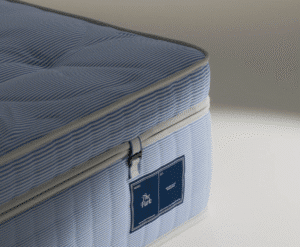How to Improve Sleep Quality with Long Covid in 5 Simple Steps
Why Sleep Issues from Long Covid Matter
If you’ve been grappling with sleep disturbances following a COVID-19 infection, you’re far from alone. A staggering number of individuals dealing with Long Covid report challenges such as insomnia, fatigue, and brain fog. Understanding these symptoms is vital for restoring your sleep quality:
– Insomnia: This involves difficulty falling asleep or staying asleep.
– Fatigue: A persistent sense of extreme tiredness that affects daily activities.
– Brain Fog: Cognitive struggles that include problems with concentration and memory.
– Daytime Sleepiness: An overwhelming urge to sleep throughout the day.
Research indicates that about 40% of Long Covid patients experience notable sleep disturbances that can significantly impact overall health and everyday functioning. The connection between sleep and physical recovery cannot be overstated.
Dr. Monika Haack from Harvard Medical School highlights, “If we better understand the mechanisms behind these sleep problems, we might identify effective treatments.” My name is Ben Trapskin, and having navigated my own journey through sleep issues caused by Long Covid, I aim to offer actionable strategies to help you reclaim restful nights. Let’s explore how to improve sleep quality in the midst of Long Covid challenges.
Understanding Long Covid and Sleep
The sleep disturbances associated with Long Covid are multifaceted. Approximately 40% of people report symptoms including insomnia and relentless daytime fatigue. This isn’t simply a matter of feeling tired; inadequate sleep heightens sensitivity to pain and can weaken the immune system.
How Neurological Symptoms and Inflammation Impact Sleep
Long Covid frequently presents neurological symptoms like “brain fog,” characterized by cognitive impairment. Inflammation is considered a central player in these symptoms. When the body fights a virus, it initiates a surge in inflammatory responses, which can disrupt both sleep and cognitive function. Dr. Haack notes, “If we determine that sleep disturbances correlate directly with pain and inflammatory dysregulation, we can target those issues while addressing sleep quality.”
Role of the Immune System
A compromised sleep pattern negatively impacts your immune response, making it more challenging to combat infections. Additionally, an overactive immune system might imply that viral remnants persist in your body, worsening Long Covid symptoms.
NIH Studies on Long Covid and Sleep
The National Institutes of Health is actively researching the intricate relationship between Long Covid and sleep quality. One study explores how sleep and pain interact within this demographic, while another illuminates how sleep and inflammation particularly affect older adults. Dr. Kristen Knutson from Northwestern University emphasizes, “Understanding the different facets of sleep quality is crucial for improved health outcomes.”
To gain insight, participants wear wrist monitors tracking sleep patterns and fill out questionnaires about their sleep quality. Blood samples also help assess inflammation and immune activity. By uncovering these links, researchers aim to develop targeted interventions that could enhance sleep quality for Long Covid patients.
Step 1: Develop Good Sleep Hygiene
Improving sleep quality begins with establishing sound sleep hygiene practices. Here are some effective tips, particularly beneficial for individuals coping with Long Covid symptoms:
Regular Sleep Schedule
Aim to go to bed and wake up at the same time each day. Consistency helps regulate your internal clock, making it easier to fall asleep and wake refreshed.
Optimize Your Sleep Environment
Transform your bedroom into a relaxing sleep sanctuary:
– Cool Room Temperature: Ideally, keep your room at 65°F (18°C) for optimal comfort.
– Noise Reduction: Consider using earplugs or a white noise machine to drown out disruptive sounds.
– Light Control: Invest in blackout curtains and limit exposure to bright lights before sleep.
– Quality Mattress and Pillow: Ensure your mattress and pillow provide the necessary support for restful sleep.
Consider Cognitive Behavioral Therapy (CBT)
Cognitive Behavioral Therapy for Insomnia (CBT-I) has proven to be effective in changing negative thoughts and behaviors that contribute to sleep problems. According to the National Sleep Foundation, CBT-I significantly improves sleep quality and alleviates insomnia symptoms.
Melatonin Supplements
Melatonin, a hormone that regulates the sleep-wake cycle, can be helpful for some. Before incorporating melatonin supplements, consult with your healthcare provider about appropriate dosage.
Step 2: Manage Stress and Anxiety
Stress and anxiety can significantly disrupt sleep, especially for those contending with Long Covid. Here are strategies to alleviate stress and foster better sleep:
Stress Reduction Techniques
Incorporate daily activities that help calm your mind:
– Deep Breathing Exercises: Engage in deep breathing techniques to relax before bedtime.
– Progressive Muscle Relaxation: This method involves tensing and slowly relaxing muscle groups to release physical tension.
Mindfulness Practices
Consider integrating mindfulness into your routine:
– Meditation: Spend a few quiet moments each day focusing on your breath to reduce anxiety.
– Mindful Journaling: Write down your thoughts before bed to clear your mind of worries.
Step 3: Optimize Your Sleep Environment
Your sleep environment can dramatically affect your sleep quality, especially when facing Long Covid. Here’s how to craft a sleep-friendly space:
Comfortable Mattress
Invest in a quality mattress that provides support and comfort, promoting restful sleep.
Bedding Choice
Opt for breathable, moisture-wicking sheets made from natural materials, which help regulate body temperature.
Reduce Noise and Light
Use blackout curtains to block external light and white noise machines to mask disruptive sounds.
Step 4: Use Supplements and Medications Wisely
When considering options for improving sleep with Long Covid, incorporating supplements and medications with caution can yield positive results:
Melatonin and FDA-Approved Drugs
Melatonin has shown promise for those struggling with sleep disturbances. Additionally, drugs such as modafinil and solriamfetol, used for excessive daytime sleepiness, are under investigation.
Step 5: Incorporate Physical Activity and Exercise
Regular physical activity can significantly enhance sleep quality. Here are a few strategic ways to include exercise in your routine:
Personalized Cardiopulmonary Rehabilitation
Tailored exercise plans that balance various forms of training can help improve overall fitness and sleep quality.
Structured Pacing
Monitor and balance periods of activity with rest to avoid overwhelming your system.
Flexibility and Strength Training
Incorporating flexibility training and strength exercises can reduce stiffness and discomfort associated with Long Covid.
Conclusion
Battling sleep issues stemming from Long Covid can feel overwhelming, but effectively addressing these challenges is essential for improving your quality of life. At Yawnder, we prioritize helping you navigate these complexities with expert evaluations and actionable recommendations.
Sleep quality does not merely impact your well-being—it shapes your daily existence. The insights discussed here aim to empower you by highlighting strategies such as establishing good sleep hygiene, managing stress, optimizing your sleep environment, using supplements prudently, and integrating physical activity into your life.
Take our sleep quiz to pinpoint your specific challenges, and let’s embark on this journey toward better sleep together. For further resources and personalized assistance, explore what Yawnder offers, and position yourself toward achieving quality sleep even amidst the trials of Long Covid.


















